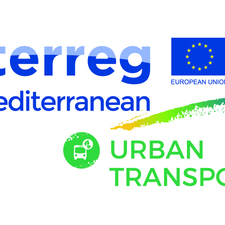Final conference of the GO SUMP project
| Subject: Sustainable Mobility, International Relations
Experts in sustainable mobility agree on recommendations concerning urban transport

On 17 and 18 September, the Malaga City Council, within the framework of the Interreg-MED Programme, hosted the final conference of the GO SUMP European project, which has resulted in the development of seven projects that offer concrete solutions to specific mobility problems in European Mediterranean cities and can be replicated throughout the Mediterranean Region.
In particular, over the past three years, the GO SUMP project has spurred the creation and development of the Urban Transport Community (UTC), which coordinates over 120 stakeholders and a budget close to €1.2 million. It has produced results which make it possible to design future European policies with regard to sustainable mobility.
Participants include 22 local corporations, 18 universities and research centres, 13 regional authorities, 4 port authorities, 3 national authorities, 4 private operators, 3 business centres and 1 regional intergovernmental forum. The seven modular projects developed within the UTC, led by the Malaga City Council in cooperation with MedCities, the project partner responsible for building the community, have capitalised on the synergies forged within the community, in an effort to contribute to a new low-carbon economy.
Projects and knowledge
More specifically, the projects that have been developed are: Mediterranean Interregional Electromobility Networks for intermodal and interurban low carbon transport systems (EnerNETMob), Low Carbon Transport in Cruise Destination Cities (Locations), MobIlity for nearly-zero CO2 in Mediterranean tourism destinations (Mobilitas), Promoting citizens' active involvement in the development of Sustainable Travel Plans in Med Cities with Seasonal Demand (Motivate), CAMPus sustainable University mobility plans in MED areas (CAMP-sUmp), Regenerating mixed-use MED urban communities congested by traffic through Innovative low carbon mobility solutions (Remedio) and Sustainable Urban Mobility in MED PORT cities (Sumport).
Transferring the knowledge gained from the resulting solutions (which proved as heterogeneous as the development of software, mobile applications, mobility management platforms, changes in urban concepts such as "horizontal condominium", modelling tools for traffic situations, mobility solutions for tourists in port cities and the development of electric mobility solutions adapted to the needs of all citizens, among others) is the formula for designing the future sustainable mobility plans of our cities.
The project's final event included the signing of a Memorandum of Understanding, in which representatives from the 7 modular projects undertook to continue their transfer knowledge activities and support the capitalisation of the results and tools generated in other MED regions. The event also provided an opportunity to conduct a series of working sessions aimed at formulating the Urban Transport Community's policy recommendations, a key part of the GO SUMP project's capitalisation process, which will soon be available on the project's website.
The various sessions organised as part of the event included a discussion session led by the secretary-general of MedCities, Josep Canals Molina, featuring experts from various levels of government and civil society, in which participants analysed the scalability of the pilot urban planning projects, as well as mechanisms for including civil society in the creation of public mobility policies. Lastly, mention must also be made of the presentation which laid out the proposed objectives for the Interreg MED Programme's next generation of horizontal Urban Transport projects.
Related documents
Related links
Related cooperation projects
Where














































